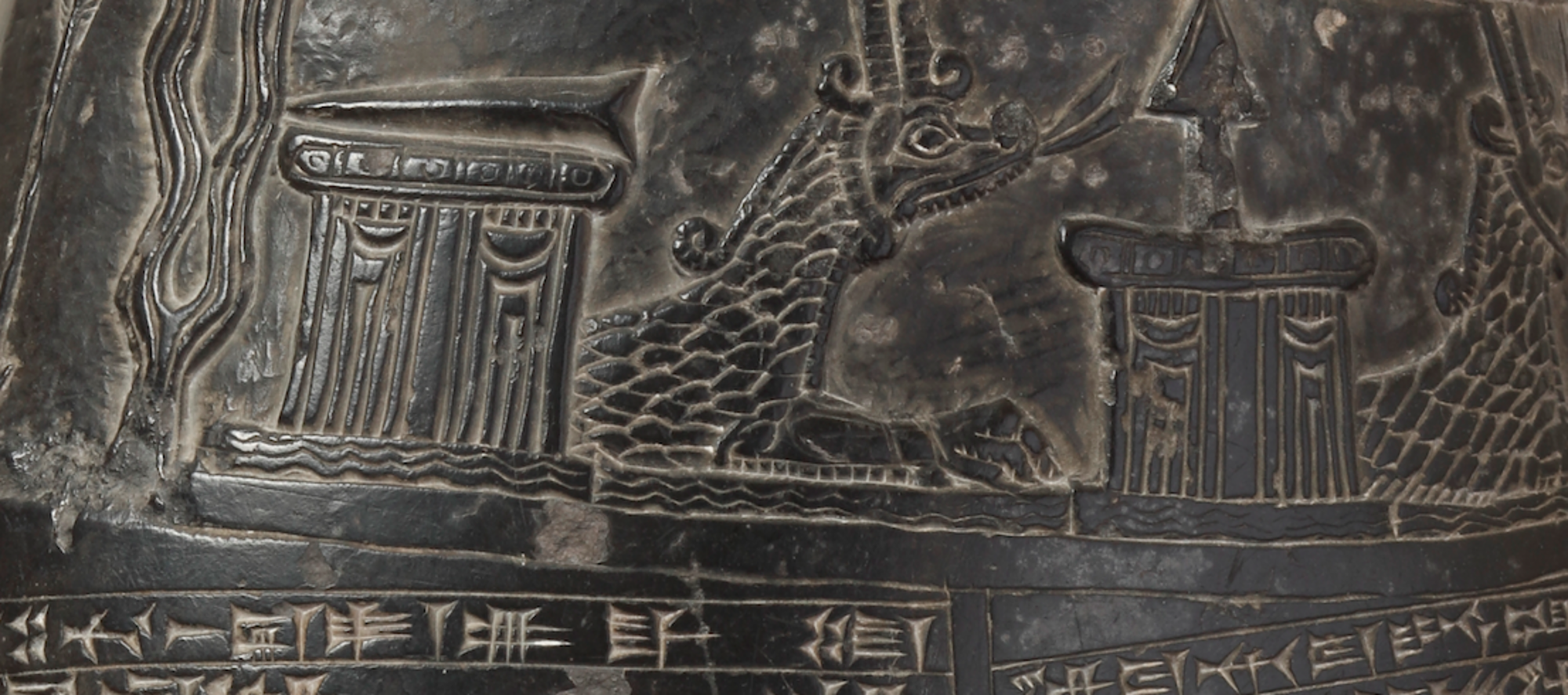
- Home
- The Caillou Michaux
- What does the “Caillou Michaux” tell us?
The text of the Caillou Michaux is written in Babylonian cuneiform signs in an archaic writing style that connects it to an ancient and prestigious writing tradition. The text is a deed recording the gift of farmland by a father, Nirah-nasir, to his daughter, Dur-Sharrukinaia'itu. The text is composed according to a set pattern. The first lines describe the land gifted in the deed followed by the names of the donor and beneficiaries. The young woman's father-in-law swears an oath which provides for a series ofdivine curses in the event the stela is harmed or the donation challenged.
A wedding gift
According to the deed, Nirah-nasir gives his daughter, privately and without royal intervention, a vast swathe of agricultural land as amarriage . This is not strictly speaking a dowry, which was commonplace in Mesopotamia and managed by the husband. The rarer mulugu was a gift made to the wife. It enabled Dur-Sharrukinaia'itu to remain in personal charge of administering the land donated by her father - a rare phenomenon in Mesopotamia in more recent periods, when property was generally managed by men. She could also delegate this task to her father-in-law, mentioned in the text of the Caillou Michaux, who swears not to claim the land for himself.


